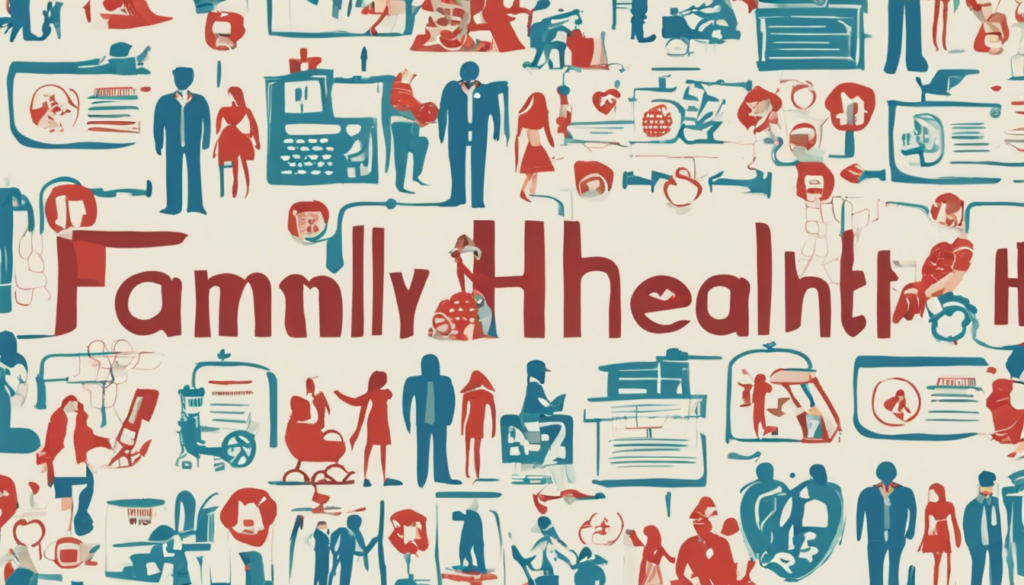Family Health Insurance
In today’s uncertain world, guaranteeing the well-being of our family members is paramount. Family health insurance plans supply a secure internet, offering monetary safety and entry to high-quality healthcare companies when wanted. As we delve into 2025, it is essential to know the dynamics of household medical insurance plans, the outthere choices, and the right way to make knowledgeable choices for the well-being of your loved ones.

Types of Family Health Insurance Plans
Comprehensive Coverage Plans
Comprehensive protection plans supply intensive advantages, together with protection for hospitalization, physician visits, pharmaceuticals, and preventive care companies. These plans usually have increased premiums; however, they present complete safety towards surprising medical bills.
High-Deductible Health Plans (HDHPs)
HDHPs include decreased premiums but increased deductibles. They are coupled with well-being financial savings accounts (HSAs), permitting households to save money tax-free for medical bills. HDHPs are very best for many who favor decreasing month-to-month premiums and are keen to pay increased out-of-pocket prices when healthcare companies are wanted.
Health Maintenance Organization (HMO) Plans
HMO plans require members to decide on a major care doctor (PCP) from a community of healthcare suppliers. Referrals from the PCP are vital for specialist visits and medical companies. HMO plans usually supply decreased out-of-pocket prices; however, restrict protection to in-network suppliers.
Preferred Provider Organization (PPO) Plans
PPO plans to supply extra flexibility in selecting healthcare suppliers. Members can go to specialists without referrals and may obtain partial protection from out-of-network companies. While PPO plans typically have increased premiums and deductibles, they supply higher flexibility in accessing healthcare companies.
Benefits of Family Health Insurance Plans
Family well-being insurance plans supply a large number of advantages, together:
- Coverage for Medical Expenses: From routine check-ups to emergency surgical procedures, health insurance ensures that your loved ones receive the required medical care without dealing with monetary burdens.
- Preventive Care Services: Many medical insurance plans cover preventive care companies resembling vaccinations, screenings, and wellness visits, selling early detection and disease prevention.
- Financial Security and Peace of Mind: With medical insurance, households can keep away from the stress and uncertainty related to surprising medical bills. It gives peace of mind knowing that your family’s health needs are met.
Considerations When Choosing a Family Health Insurance Plan
Selecting the right health insurance plan for your loved ones requires cautious consideration of several elements:
- Premiums and Deductibles: Balancing month-to-month premiums with out-of-pocket prices is important. Assess your loved ones’s healthcare wants and finances to discover a plan with an appropriate premium and deductible.
- Network of Healthcare Providers: Ensure that the plan’s community consists of the most well-liked medical doctors, hospitals, and specialists. Consider the proximity of healthcare suppliers to your own home or office for comfort.
- Coverage for Specific Medical Needs: Evaluate the plan’s coverage for services such as maternity care, psychological well-being remedies, and pharmaceuticals. Choose a plan that aligns with your loved ones’s anticipated medical wants.
- Prescription Drug Coverage: Review the plan’s formulary to understand coverage for prescription medications. Consider the provision of generic alternate options and any restrictions on medicine refills or dosage limits.
Comparison of Top Family Health Insurance Plans in 2024

In 2024, several insurers will supply aggressive family health insurance coverage with various options and advantages. Here’s a comparison of some prime plans:
| Insurer | Plan Name | Premiums | Deductible | Network Coverage | Additional Benefits |
|---|---|---|---|---|---|
| XYZ Health | FamilyCare Plus | $$ | $$$ | Nationwide | Telemedicine and Wellness Incentives |
| ABC Insurance | Total HealthFamily | $$ | $$$$ | Regional | Maternity Care, Prescription Coverage |
| DEF Healthcare | Essential Family | $ | $ | Local | Preventive Care and Health Savings Account |
Tips for Saving Money on Family Health Insurance
Managing healthcare prices is important for households. Here are some suggestions for saving cash on household medical insurance:
- Utilizing Employer-Sponsored Plans: Many employers supply group health insurance plans with competitive premiums and advantages. Take advantage of employer-sponsored protection if out there.
- Exploring Government Subsidies and Tax Credits: Depending on your revenue stage, you could qualify for presidency subsidies or tax credits to help scale back the price of well-being insurance premiums. Explore available options via healthcare marketplaces or authorities packages.
- Evaluating Cost-Sharing Options: Consider high-deductible well-being plans coupled with well-being financial savings accounts (HSAs) for tax benefits and potential price financial savings. Compare the overall price of protection, together with premiums, deductibles, and out-of-pocket bills, to seek out essentially the most cost-effective choice for your loved ones.
How to Enroll in a Family Health Insurance Plan
Enrolling in a household health insurance plan requires cautious planning and consideration. Here’s the right way to navigate the enrollment course:
- Open Enrollment Periods: Most well-being insurance plans have designated open enrollment intervals throughout which you’ll enroll, renew, or make modifications to your protection. Pay consideration to enrollment deadlines and guarantee the well-timed submission of purposes.
- Special Enrollment Options: Qualifying life occasions resembling marriage, delivery/adoption of a kid, or lack of different protection might set off particular enrollment intervals outside of the common open enrollment interval. Be conscious of your eligibility for a particular enrollment and submit the required documentation promptly.
- Application Process and Documentation: Gather vital paperwork resembling proof of ID, revenue verification, and member of the family information earlier than enrolling in a well-being insurance plan. Fill out the application entirely and ship the insurer any extra files they may need.
Understanding Coverage Limits and Exclusions
While household health insurance plans offer comprehensive coverage, it is important to know protection limits and exclusions.
- Pre-existing Conditions: Some plans might impose ready intervals or exclusions for pre-existing medical circumstances. Review the plan’s coverage relating to pre-existing conditions and any waiting periods that will apply.
- Limitations on Certain Treatments or Services: Read the plan’s protection paperwork rigorously to know any limitations on particular therapies, procedures, or companies. Certain elective procedures or different therapies will not be lined underneath your plan.
- Out-of-Pocket Maximums: Familiarize yourself with the plan’s out-of-pocket maximum, which limits the overall quantity you may pay for lined companies in a given year. Once you attain the out-of-pocket most, the plan usually covers 100% of eligible bills.
Frequently Asked Questions (FAQs) about Family Health Insurance Plans
What is the distinction between HMO and PPO plans?
HMO plans require members to pick a major care doctor (PCP) and procure referrals for specialist visits, whereas PPO plans supply extra flexibility in selecting healthcare suppliers and don’t require referrals.
Can I add dependents to my medical insurance plan?
Yes, most household medical insurance plans permit policyholders to add dependents, together with spouses and children, to their protection.
Are there penalties for not having medical insurance for my household?
In some jurisdictions, there could also be penalties or tax penalties for not having well-being insurance coverage for yourself and your loved ones. Check native rules and healthcare legal guidelines to know your obligations.
How can I discover if my insurance coverage plan covers a specific physician?
You can usually search the insurer’s website or contact their customer support to confirm whether or not a particular physician or healthcare supplier is included within the plan’s community of suppliers.
What should I do if I lose my job and my medical insurance protection?
If you expertise a lack of job-based health insurance protection, you could be eligible for COBRA continuation protection or particular enrollment in a brand new medical insurance plan via a healthcare market. Explore your choices promptly to keep away from gaps in protection.
Conclusion

Family medical insurance plans are an important element in guaranteeing the well-being and financial security of your family members. By understanding the out there choices, evaluating plans, and contemplating your loved ones’s healthcare wants and finances, you may make knowledgeable choices to safeguard their well-being for years to come.

